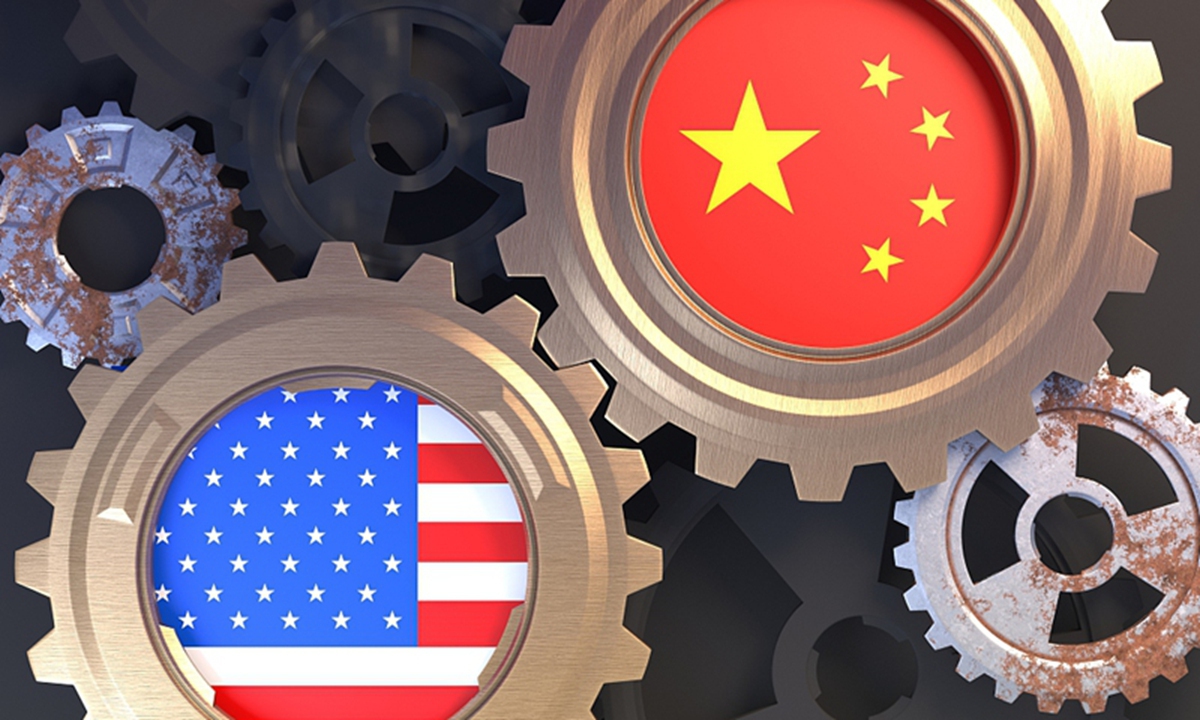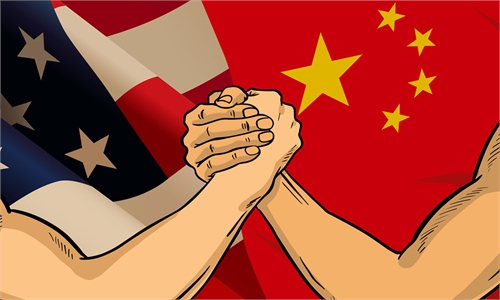
File photo
The US collaboration with other nations on imposing export controls on Russia can be used as a template to counter China, the head of the US Commerce Department's Bureau of Industry and Security said, Bloomberg reported.The remark came at a time when there is already growing speculation about whether the US will expand the current sanctions against Russia to China.
Western sanctions against Russia have already plunged the global economy into energy crisis, food insecurity, soaring inflation and other severe problems. If the US wants to impose the same kind of sanctions on China, the consequences will also be very serious.
Then, should China be afraid of the US expanding sanctions from Russia to itself? The answer is no. China has been the top trading partner for more than 120 countries and regions, so one direct consequence of a trade restriction against China is disastrous disruption to global supply chains. And it is questionable whether its Western allies that have strong trade connections with China could follow the US lead to impose exports controls.
It is, of course, necessary for China to counter the US containment and unilateral sanctions if possible. But that doesn't mean China should focus on too much the meaningless repeated struggles with the US, which is exactly what the US wants. China has more and broader channels to enhance bilateral and multilateral trade with other countries, and there are many related issues that need to be addressed to boost foreign trade.
Now with the US showing inclination toward expanding sanctions, China's top priority is how to strengthen trade with countries including Russia and expand its own manufacturing exports.
Like many other emerging economies, China's attitude toward Western sanctions against Russia is clear. China has its own independent foreign trade policy, which is not subject to Western sanctions. The US has no right to make foreign trade policy for China.
Chinese Vice Foreign Minister Le Yucheng said in April that no matter how the international landscape may change, China will continue to strengthen strategic coordination with Russia for win-win cooperation, jointly safeguard the common interests of the two countries and promote the building of a new type of international relations and a community with a shared future for mankind.
While China's exports to Russia fell sharply in recent months due in large part to the volatility of the ruble and companies' cautiousness, bilateral trade between the two countries increased by 26.2 percent year-on-year in the first half of this year. The growth rate far exceeded that of China's trade with its top five trading partners.
The trade structure between China and Russia is highly complementary. Energy and agriculture are the backbone of the Russian economy, but due to its relatively weak manufacturing sector, it needs to import finished goods, where China has the advantage in producing. So for the sake of sustainable development of bilateral trade, it is necessary for China to consider how to make bilateral trade more balanced.
More balanced trade between Russia and China would benefit global trade, and indeed, many emerging economies around the world value trade with Russia and want to expand it, such as India, Brazil and South Africa among the BRICS. China is not alone. This is not something that can be managed by U.S. sanctions.
Another direction that China needs to work on is how to leverage its huge domestic market to further enhance its influence and competitiveness of its manufacturing sector in the international market and to increase its importance to global supply chains.
In particular, China has formed wider trade networks with more countries based on industrial chains and supply chains, it will only be self-destructive for the US and its allies if they expand sanctions to China.



